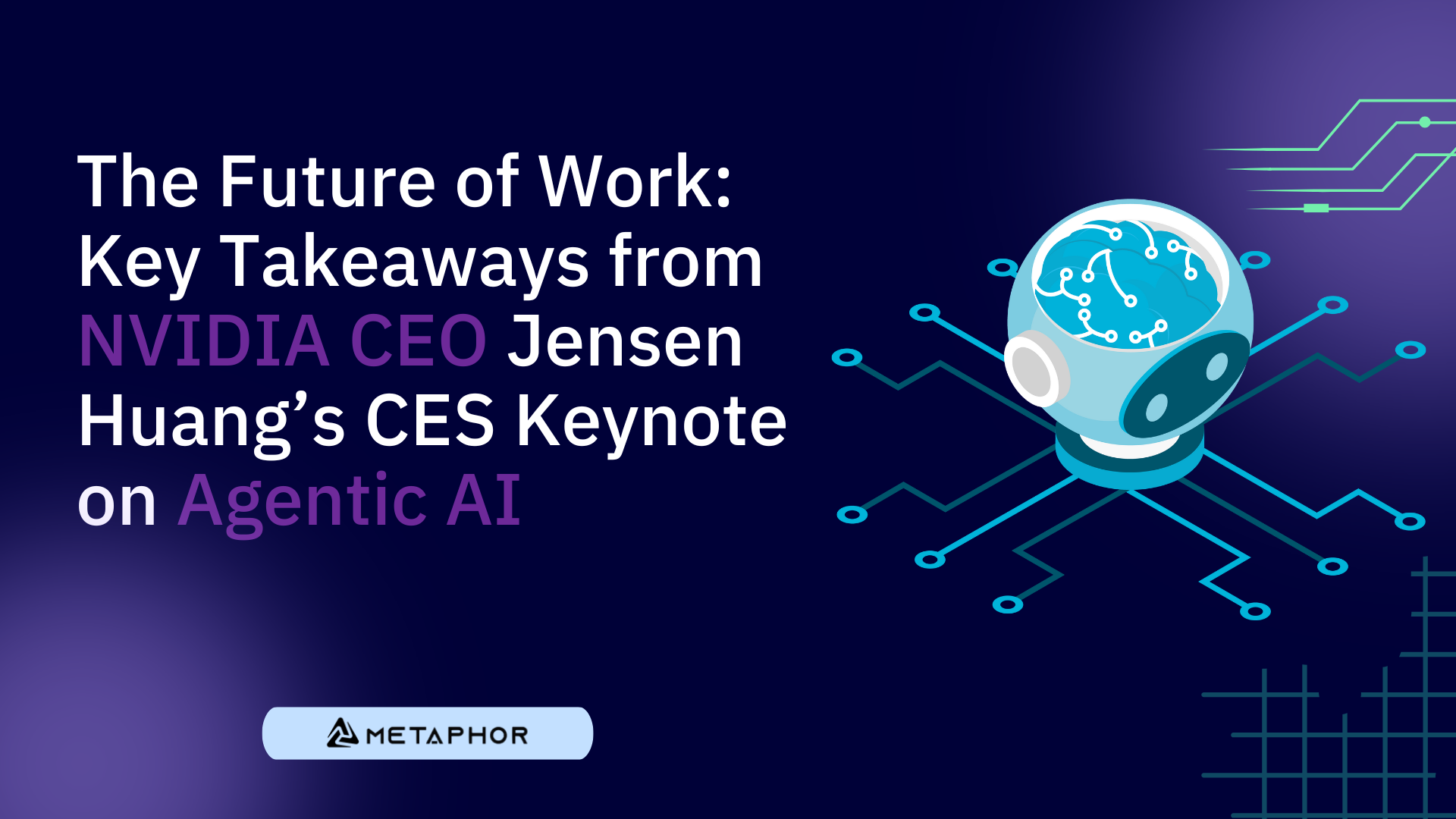At the recent Consumer Electronics Show (CES), NVIDIA’s CEO, Jensen Huang, delivered a compelling keynote presentation that has sparked conversations across the tech industry. He highlighted the transformative potential of agentic AI—intelligent agents designed to perform tasks autonomously and enhance workplace efficiency. This emerging technology, according to Huang, is poised to serve as the new workforce, revolutionizing industries and unlocking multi-trillion dollar opportunities. Here’s a breakdown of the key themes from his presentation and their implications for businesses and society.
Understanding Agentic AI
Agentic AI refers to artificial intelligence systems capable of acting independently to complete complex tasks. Unlike traditional AI, which often requires human intervention for decision-making, agentic AI can analyze data, make informed choices, and execute actions without constant oversight. This evolution allows businesses to automate repetitive tasks, freeing up human employees to focus on more strategic and creative functions.
Automation of Tasks
One of Huang’s primary focuses was on how agentic AI can dramatically automate mundane and repetitive tasks across various sectors. By integrating these intelligent agents into daily operations, companies can achieve higher efficiency levels, reduce human error, and ultimately lower operational costs.
Examples of Automation:
Customer Service:
Chatbots and virtual assistants can handle queries and support requests 24/7.
Data Entry:
Automated systems can process and input data, significantly speeding up workflows.
Supply Chain Management:
AI agents can monitor inventory levels, predict shortages, and place orders automatically.
Enhancing Efficiency and Productivity
The introduction of agentic AI into the workforce stands to enhance overall productivity. Huang emphasized that AI agents could work alongside human employees, taking over routine functions and allowing teams to focus on complex problem-solving and innovation.
Increased Throughput:
With AI handling time-consuming processes, organizations can increase their output without compromising quality.
Real-time Decision Making:
AI can analyze vast amounts of data instantly, providing insights that facilitate quick and informed decision-making.
Tapping into Multi-Trillion Dollar Opportunities
Huang articulated a vision where agentic AI could unlock significant economic potential. By streamlining operations and reducing costs, businesses can tap into new revenue streams, improve customer experiences, and expand their market reach. Industries such as healthcare, manufacturing, finance, and logistics stand to benefit enormously from embracing this AI-driven transformation.
Growth Potential:
According to Huang, the adoption of agentic AI could lead to the creation of entirely new markets and segments, with dollars in the trillions up for grabs.
Job Creation:
While there are concerns about AI displacing jobs, Huang argued that new roles would emerge, particularly in AI oversight, management, and strategy development.
AI Architecture:
The Blueprint for Success to help businesses implement agentic AI solutions effectively, Huang introduced blueprints for AI architecture, emphasizing the need for robust infrastructure. He spoke about the importance of scalable and adaptable frameworks that can integrate seamlessly with existing systems.
Scalability:
Businesses should seek AI frameworks that can grow and evolve as their needs change.
Integration:
The ability to integrate with current workflows and data sources is crucial for maximizing the effectiveness of AI solutions.
Conclusion Embracing the AI-Driven Future
Jensen Huang’s keynote at CES served as a powerful reminder of the profound impact that agentic AI could have on the future of work. By automating tasks and enhancing efficiency, AI agents can be a valuable addition to the workforce, enabling businesses to unlock unprecedented opportunities.
As organizations begin to explore the possibilities of agentic AI, it is essential for leaders to approach this transformation strategically. Investing in the right infrastructure, nurturing a culture of innovation, and preparing for the evolving job landscape will be critical for success.
The era of agentic AI is upon us, and it’s time for enterprises to embrace this change and harness its potential for a more efficient, productive, and prosperous future.
In a world where time is valuable, having the right tools at your disposal allows you to focus on what truly matters: your ministry and the members you serve.




